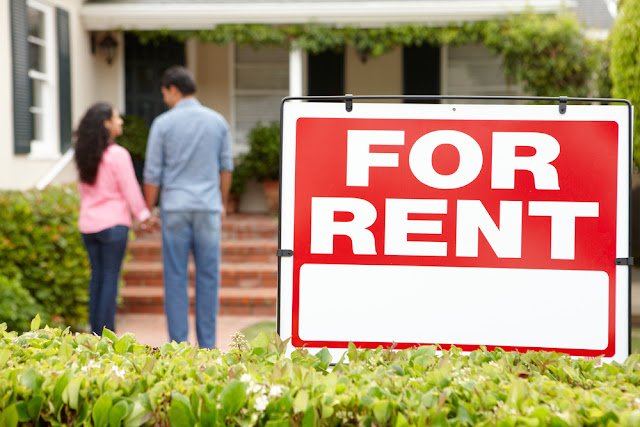Becoming A Landlord: What Does It Cost?
Let’s say you come into some money that means that you could play out a dream of owning your own building. You could have spent a lot of time imagining how you could invest a large chunk of money, and rather than pile it into the stock market or into precious metals, push it into real estate. A lot of budding investors are interested in real estate as an option, and for good reason! Not only does it generate a regular income, you have a tangible asset that has a changing value over time. Beginning to build wealth and using real estate to do so is an intelligent idea, but you should be sure that you are ready to jump on that investment train before you make the leap.
If you decide to put your cash into real estate, you should look into what it would cost to become a landlord. There are so many financial benefits to becoming a landlord and the biggest is the money that you can receive to cover your monthly mortgage payments! A lot of landlords choose to charge slightly more than the minimum mortgage repayment so that they can build equity in their existing home. Some of the income that comes from renting out property can also cover the repairs and maintenance of a home, as well as serve as a little profit. A lot of landlords do not have a profit initially, especially as they start-up letting out their property. The money spent on maintenance, cleaning contracts and repairs takes away from that initial profit but that should settle down in time. Getting your building or property up to code will cost money, but it’s an investment after all, which means this is anticipatory!
Unlike investments in the stock market or precious metals, real estate is an ongoing cost. Not only do you have to consider the initial costs of investment in real estate, you have to consider that you must keep spending money to maintain and care for your property. This can be from general wear and tear maintenance to a full remodeling of your building as time moves forward. When you decide to go for it with real estate as your investment, you have to weigh all the costs involved. This isn’t just the cost of maintenance and potentially hiring a concierge to manage the tenants in your building, it’s the legal costs and taxes involved, too. So, when you decide to invest in a building to rent out and become a fully-fledged landlord, what should you consider spending your money on?
Real Estate Agency
It’s so easy to list the homes in your building with a rental agency, and the costs are minimal depending on the type of service you require. There are agencies out there that offer a full management service, meaning that they will look after repairs, tenant issues and all enquiries relating to your building. Of course, if you want a little more control than that, you can have a semi-managed service whereby you can deal with tenants and contract your own repairs as and when needed. Using an agency is a good option if all you want to be responsible for is collecting the rent. When it comes to pricing up how much rent you want to charge, you need to ensure that agency fees are fully covered, along with the mortgage payments and insurance. While you consider those costs in your rent, you should shop around for what’s usual for the market so that you aren’t undercutting yourself, but also not pricing yourself out!
Insurance
As a landlord, you have a big responsibility to ensure that your building is fully insured. Anyone who makes the leap to rent out their property – or in the case of owning a building, multiple properties – needs to ensure they have spent out on proper landlord’s insurance. In some areas, this is a legal requirement and honestly, it shouldn’t have to be legal for you to actually invest in it. It may sound pessimistic, but things can and do go wrong all the time. From fires to floods, you have to be able to cover yourself, especially if you have tenants that fail to pay their rent. Insurance can ensure you are not out of pocket if this happens. You have to have proper insurance that is designed for landlords, and you need to be in regular contact with your insurance provider when anything changes. There are plenty of websites like this where you can research the right cover for your property and a good property will not only insure your building, but your liability and any rental losses. Your rent will usually cover the mortgage and if this isn’t included, you could be in a pickle if someone doesn’t pay their rent on time!
Legal & Administrative Fees
There are some not-nice reasons to have money set aside for legal fees and advice, and part of that is in the case of eviction. Administrative costs when it comes to referencing tenants should also be set aside. Of course, your property management company may handle this for you, but not everyone has an agency working on their behalf. Being a landlord is rather a minefield when it comes to information and if you aren’t getting the right advice, you could find yourself tied up in all sorts of legal issues! There are several areas who will send out representatives of the state to check that the building it up to code and is not flouting health and safety rules. The legal regulations involved in owning a building can be looked at in more detail here.
Cleaning & Care
As a building owner, it’s your responsibility to maintain the look of the properties that you let out. Sure, a tenant is responsible for the overall cleanliness of their apartment, but the building itself will have a concierge desk and foyer that will require maintenance, as well as stairwells and an outside area. To attract the right tenants to your newly acquired building, you may have to spend some money on the paint, carpets and landscaping in your building. Looks matter, and tenants will want to know they are moving into a property that is well-maintained and looked after. In the same way that you would to sell your home, you need to make it look inviting and as if you want people to live there. A dark, dank building with smashed windows and missing light bulbs won’t appeal to people, regardless of how luxuriously decorated the apartments themselves are.
When you decide to invest your money in real estate, you need to do proper planning and research the land deeds thoroughly. You should check the planning on the local roads and work out if any planned works will affect the value of your property later on. Some property owners like to start small when it comes to their real estate investment; buying a small home or duplex. It’s a great way to get stuck into life as a landlord and understand the costs that are associated with owning something you plan to rent out to others. As you become more and more comfortable with your surroundings, your expectations of what you have to pay out and your budgeting abilities, investing in further real estate with profits and the building we mentioned earlier is a smart idea.
While you’re considering the financial costs of becoming a landlord, have you considered the stress? Making such huge decisions about a large investment can be difficult, not to mention the potentially high turnover of tenants, which is the biggest stress for most landlords. Stress is a growing issue among landlords and this can have a negative effect on life outside of letting out property. It’s for this reason that a lot of landlords will budget the extra cost of a management service and allow an agency to take control. Rent arrears, difficult tenants and property repairs are just a few of the reasons that a landlord can find letting their property to be stressful. Avoiding stress means being organised, getting the right insurances, getting the right references and thoroughly researching your tenants before allowing them to move in.
Investing in a building doesn’t have to be a headache – in fact, it could be a tangible asset that you later sell on for an incredible profit. This can happen especially if you put as much as you can into it and make it look fantastic while you’re at it! Following the right steps with regard to insurances and costs is important, though, as you can really take the stress out of it with that type of foresight. The actual monetary costs of being a landlord will vary state to state, but you should be able to access these costs fairly easily with some research. You can make an adventure out of your experience, just take the right advice first!




